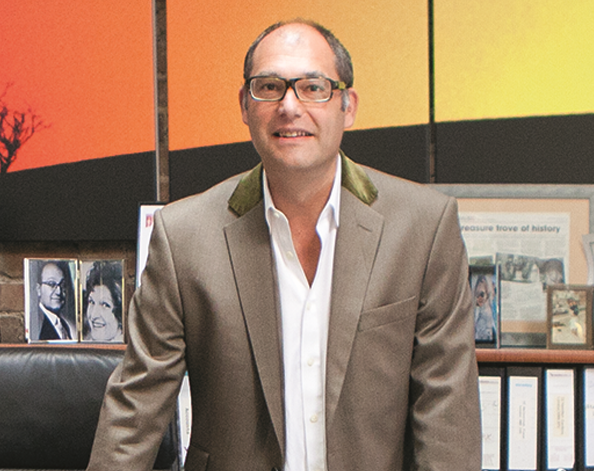
03 Jun 2020
The future of philanthropy in an era of uncertainty
As we face a new era of uncertainty, the charitable sector is under enormous pressure to support critical community needs.
The overwhelming scale of the Covid-19 crisis has created and amplified social problems that the government alone cannot tackle - whilst also creating longer-term challenges that society globally will come to face in the future. As such, philanthropic giving is more important than ever.
High-net-worth individuals are in a unique position to respond in a way that complements and supports both the government and the charity sector, and to alleviate some of the pressure on not-for-profits. Indeed, this is a shift that emerged clearly in a report we recently conducted in consultation with The Future Laboratory, which explored the role of businesses and high-net-worth individuals in society.
In this respect, Covid-19 represents a new era for philanthropy that is defined by fast-changing shifts in cultural norms, societal values and behaviours, along with an increased focus on responsible practices.
I recently had the pleasure of hosting a webinar on behalf of Investec, exploring the future of philanthropy in the wake of the pandemic. I was joined by three brilliant and inspiring philanthropists: Shani Zindel, founding partner and chief investment officer of Livingbridge, and a board trustee of youth charity, Impetus; Peter Cluff, co-founder of Europa Capital, trustee of the Community Foundation for Surrey and chairman of Guildford Philanthropy; and Jonathan Crown, the founder of Project Harar in Ethiopia.
Here are some of the insights from our discussion.
Reflecting on the new world
This crisis - like other emergencies before it - has thrust the essential role of philanthropy and charitable giving into the spotlight.
Covid-19 has exposed some of the much deeper fault lines which run through our society, as pressures brought about by the pandemic catalyse social problems such as food poverty, unemployment, the digital divide and access to education.
Furthermore, on top of an ever-increasing need for greater philanthropic effort we’re seeing a collective interrogation of our values, as individuals and as society. At one point, it is estimated a third of the world’s entire population was living under some form of lockdown. This has been a unique moment for taking stock, and rethinking priorities on a global scale: we’ve been forced to reflect on what’s really important.

Covid-19 has created a response of unprecedented scale - we’re seeing a rise in giving and volunteering, a reconfiguring of commercial production lines for social good, a rise in neighbourliness, and reconnection with the local community. Many people will be inspired to bring philanthropic plans forward as a result.
Getting it right
We know from our own research how important philanthropy is to many of our own clients. A survey we published at the end of last year showed that 73% of Investec clients view charitable giving as ‘important’ or ‘very important’.
But giving isn’t perhaps as easy as it sounds - not least at a time of global crisis. Selecting a cause requires an ability not just to identify a problem but, crucially, to see what the solution could be.
Nor is it as straightforward as simply donating money. To give an example from our own experience, since early April - shortly after the UK went into official lockdown - Investec has been working to supply a number of food banks which have been struggling under the pressures brought about by Covid-19. While providing funding was important due to the surge in demand for stock, what turned out to be even more important was access to a reliable supply chain, which was by far the food banks’ bigger challenge. By activating a series of client relationships across the UK, Investec has been able to ensure the food banks in 15 cities are fully stocked, and able to meet the heightened demands.
This is just one example of the many ways in which we, and the clients and philanthropists we speak to daily, are having to adopt a disruptive mindset in order to give back in a meaningful way. This is an entrepreneurial approach to philanthropy, and one I see in many of our clients; it’s hands-on, focused on solving problems, and has a readiness for doing things differently.

Sadly, I believe that around a third of charities could fail during this crisis. Charities have suffered just like the worst-hit amongst business and industry - in this respect we are similar to something like the hospitality sector. To overcome this, instant change is vital - like my local pub, which has morphed into a greengrocers and convenience store. Charities need to be upbeat, adaptable and bold.
Sustainable long-term interventions
Looking to the future, the societal challenges thrown into the spotlight by the pandemic will, sadly, not be going anywhere soon. Even once the peak of the Covid-19 crisis has passed, there will remain many vulnerable people left in its wake. Already experts are warning that UK unemployment rates could be set to double in the UK over the coming months.
As such, charitable giving will become increasingly important – yet it could well become harder than ever. A poll conducted during our webinar found that 53% of attendees expected overall charitable giving to fall in the next 12 months, as a result of the pandemic.
This is why, when it comes to effective philanthropic interventions, it should never be about simply putting a plaster over an issue. Instead, I encourage philanthropists, large and small, to consider where they can build long-term, sustainable relationships, in order to seek to address systemic issues at the root of the problems.
In many - although not all - cases this might mean taking a local approach, at least in the first instance. There is a belief that impact at scale requires launching an initiative to go far and wide, but quite often a more targeted, localised programme may be more effective. For instance, I encourage the clients I speak to to think about the areas where they or their business may already have CSR commitments in place, and begin by focusing efforts there. Doing so brings with it the benefit of existing understanding and more open dialogue from the outset, making it easier to identify ways to enhance those relationships.
With this approach comes the opportunity to interrogate the issues at play. Ask yourself: how can I help, and in what capacity? This can go beyond just giving money; our research showed that 42% of Investec clients both donate financially and volunteer their time to charitable causes.
When it comes to our own work supporting the food banks, this means understanding the vital role that these organisations play within the community, and the issues that lead people to relying on food banks in the first place. We work with a number of community partners to deliver education and entrepreneurship programmes which focus on issues around employment, skills and opportunities, in the hope that these efforts will contribute to a society in which food banks no longer need to exist at all.

The confluence of more information and more visibility, coupled with a younger generation who are more socially and environmentally aware, will usher in a new period of giving - not just donating money, but actively engaging in your community.
In conclusion, as the full impact of the Covid-19 pandemic begins to be felt, charities will find themselves in greater need of support than ever: if you haven’t already, now is the time to begin thinking about the role you can play - however small - in providing some of that support.
At Investec, we have always been enormously proud to work with clients who are passionate about the causes they support, and who bring the same entrepreneurial mindset to their philanthropic goals as they do their professional work. We are here to provide access to our network, and to facilitate the meaningful connections and conversations that can help others set out on that journey.
